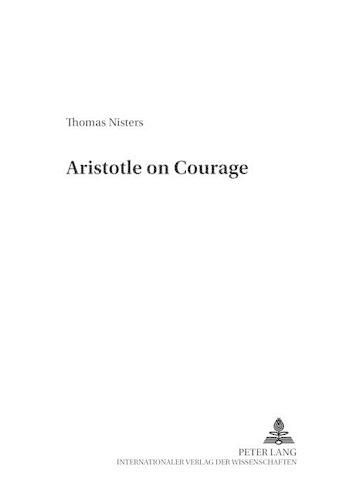Readings Newsletter
Become a Readings Member to make your shopping experience even easier.
Sign in or sign up for free!
You’re not far away from qualifying for FREE standard shipping within Australia
You’ve qualified for FREE standard shipping within Australia
The cart is loading…






This book offers a thorough and precise analysis of Aristotle’s (384 - 322 B.C.) theory of the virtue of courage. On the one hand the reader will find a meticulous commentary on relevant chapters from the Nicomachean Ethics and from Aristotle’s lectures on Rhetoric. In addition, extensive references to Plato’s (427 - 346 B.C.) discussion of courage, as put forward in his dialogue Laches, help to clarify Aristotle’s position. On the other hand the author fathoms on Aristotelian grounds the still topical problems related to courage in terms of systematic moral philosophy: Which role do rational choice and knowledge play with regard to ethical virtues such as courage? Is there some specific objective attached to courage in particular and to ethical virtues in general? How can one tell apart those who only seem or pretend to be courageous and those who are really so? Is there any special method or strategy for defining ethical concepts?
$9.00 standard shipping within Australia
FREE standard shipping within Australia for orders over $100.00
Express & International shipping calculated at checkout
This book offers a thorough and precise analysis of Aristotle’s (384 - 322 B.C.) theory of the virtue of courage. On the one hand the reader will find a meticulous commentary on relevant chapters from the Nicomachean Ethics and from Aristotle’s lectures on Rhetoric. In addition, extensive references to Plato’s (427 - 346 B.C.) discussion of courage, as put forward in his dialogue Laches, help to clarify Aristotle’s position. On the other hand the author fathoms on Aristotelian grounds the still topical problems related to courage in terms of systematic moral philosophy: Which role do rational choice and knowledge play with regard to ethical virtues such as courage? Is there some specific objective attached to courage in particular and to ethical virtues in general? How can one tell apart those who only seem or pretend to be courageous and those who are really so? Is there any special method or strategy for defining ethical concepts?